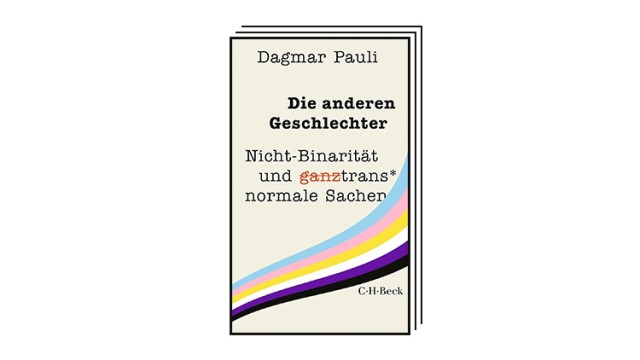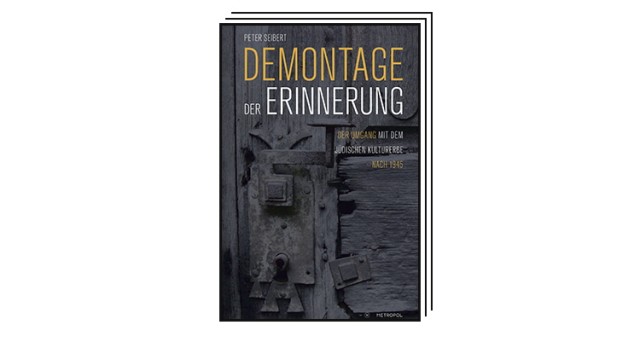Adam Thirlwell: The distant future. Novel. Translated from English by Jan Wilm. S. Fischer, Frankfurt 2023. 400 pages, 26 euros.
(Photo: S. Fischer)
The Brit Adam Thirlwell tells the story of Celine, who benefits less than one would wish from the great awakening of civil freedom, the French Revolution. Although she actually likes being a woman, we hear from her: “Sometimes she wished she was a man, not really and not always, but sometimes she did, simply because of the freedom and the lightness. She couldn’t be casual, not in that way way men could exist in the world.” Little anachronisms and his sense of party politics give this novel, which begins in the last days of the Ancien Régime, a Sophia Coppola vibe. A fine emancipation novel by one of the best authors of our time.
Joanna Bator – Bitterness

Joanna Bator: Bitterness. Novel. Translated from Polish by Lisa Palmes. Suhrkamp, Berlin 2023. 829 pages, 32 euros.
(Photo: Suhrkamp/SZ)
The Polish writer Joanna Bator tells the story of four generations of women in a family in this sensual, everyday novel. Their connections are often interrupted by strokes of fate and violent incidents, which are often caused by men. What brings them together is the concern of the youngest among them, Kalina, the novel’s narrator, with the memory of the experiences her ancestors have had over the course of a century.
Gunnar Decker-Rilke. The distant magician

Gunnar Decker: Rilke. The distant magician. Biography. Siedler Verlag, Munich 2023. 608 pages, 30 euros.
(Photo: Siedler Verlag)
Rainer Maria Rilke is something like the poetic conscience of Germans with an affinity for education. Almost everyone who knows what a poem is can recite a few verses by Rilke. Anyone who has studied the poet and the work in more detail can quote from the “Duino Elegies”, at least the famous beginning “Who, if I scream, will hear me from the angelic order?”. The line from “Autumn Day” – “If you don’t have a house now, you won’t build one anymore” – has now become part of everyday language, and not just by those desperate for housing. In his biography “Rilke – The Distant Magician”, Gunnar Decker lets the contradictions of the poet’s life wander through the book as a biographical continuum: asceticism and luxury, closeness and distance. Decker succeeds in describing Rilke’s life with critical empathy and great narrative skill. The distant magician comes astonishingly close to you in many reading moments.
Dagmar Pauli: The opposite sexes

Dagmar Pauli: The opposite sexes. Non-binarity and all-trans* normal stuff. CH Beck, Munich 2023. 272 pages, 18 euros.
(Photo: CH Beck)
Dagmar Pauli, head of child and adolescent psychiatry at the Zurich University Psychiatric Hospital, has written a book about queer young people based on her decades of treatment practice that goes far beyond the medical horizon. Because it addresses a double paradigm shift that is currently being fought over. On the one hand, with regard to the question of what we define gender as (and who can define it at all). And on the other hand, with regard to the idea of what we understand being a child or young person to be. For Pauli, it is time to allow the paternalistic idea of protection for adults to take a further back seat to the right to self-determination of young people. “The goal must be for society to open up to the needs of the younger generation,” writes Pauli.
Frank Trentmann – Dawn of Conscience

Frank Trentmann: Awakening of conscience. A history of the Germans from 1942 to today. Translated by K. Schuler, S.Reinhardus, H. Dedekind, H. Lutosch and F. Reinhart. S. Fischer Verlag, Frankfurt 2023. 1036 pages, 48 euros. E-book: 22.99 euros.
(Photo: S. Fischer Verlage)
After the Second World War, many Germans felt the need to finally be “good” again or at least not to continue to be seen as Nazis and murderers around the world. But how did they do it? The historian Frank Trentmann, who teaches in London, has presented a monumental moral history that is unparalleled and stretches from 1942 to 2022. This stimulating, extremely rich in material and, despite its length, easy to read book tells of the often painful, always contradictory, sometimes admirable attempts of Germans to work on a positive self-image.
Peter Seibert – Dismantling memory

Peter Seibert: Dismantling memory. Dealing with Jewish cultural heritage after 1945. Metropol Verlag, Berlin 2023. 400 pages, 26 euros.
(Photo: Metropol Verlag)
How did the Germans actually deal with the architectural relics of Jewish culture after the Second World War and the Holocaust? Respectful and sensitive? Not at all! What the cultural scientist Peter Seibert has compiled in his book “Dismantling Memory” for the years up to 1988 is a shameful testimony for both the Federal Republic of Germany and the GDR. Where there were still synagogues, space was suddenly needed for cinemas, commercial buildings, parking lots and wine bars. It wasn’t always about anti-Semitism; often it was pure thoughtlessness without any awareness of history. Especially in these days it would be good to come to terms with the lack of empathy with which Jewish life in Germany has been viewed for decades.

